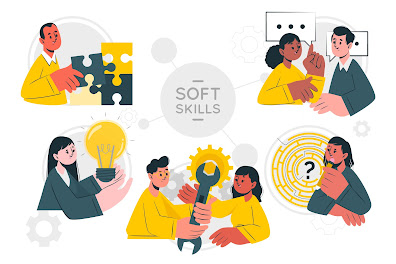10 Essential Facts About the Level 3 Certificate in Assessing Vocational Achievement
Introduction
Embarking on the journey of obtaining the Level 3 Certificate in Assessing Vocational Achievement is a significant step for individuals aspiring to become competent assessors in vocational education. Whether you're considering this certification or have already enrolled, understanding the key facts can pave the way for a smoother and more successful experience. In this blog, we'll delve into 10 essential facts about the Level 3 Certificate in Assessing Vocational Achievement, shedding light on what you need to know to navigate this educational milestone.
1. Understanding the Purpose of the Certificate
The Level 3 Certificate in Assessing Vocational Achievement is designed for individuals who assess vocational skills, knowledge, and understanding in a variety of workplace settings. This qualification equips assessors with the necessary skills and knowledge to effectively evaluate learners' performance and guide them toward achieving vocational qualifications.
2. Assessment Methods Covered
As a candidate pursuing this certificate, you'll delve into various assessment methods. These may include observing performance in the workplace, examining work products, questioning, professional discussions, and reviewing learner statements. The comprehensive coverage ensures that you gain a well-rounded understanding of assessment techniques applicable to diverse vocational contexts.
3. The Role of Assessors
One of the central focuses of the Level 3 Certificate is to prepare individuals for the role of an assessor. Assessors play a crucial part in guiding learners through their vocational journey, providing constructive feedback, and ensuring that assessment processes are fair, reliable, and valid. This certification hones your skills to excel in this pivotal role within the educational landscape.
4. Understanding the Vocational Contexts
The Level 3 Certificate in Assessing Vocational Achievement is not limited to a specific sector or industry. Instead, it is broad in scope, allowing candidates to apply their skills across various vocational contexts. Whether you're involved in healthcare, construction, or any other sector, the principles and practices learned in this certification are adaptable and transferable.
5. Assessment Criteria and Quality Assurance
A key aspect of the Level 3 CAVA is learning how to develop assessment plans and understand the importance of quality assurance. You'll explore the criteria for effective assessments and how to maintain consistency and fairness in evaluating learners' achievements. This knowledge is fundamental for ensuring the reliability and validity of assessment processes.
6. Flexible Learning Opportunities
The Level 3 Certificate recognizes the diverse needs of learners, offering flexibility in terms of learning opportunities. Whether you prefer traditional classroom settings, online learning, or a combination of both, there are options available to suit your learning style and schedule. This adaptability enhances accessibility for a broader range of aspiring assessors.
7. Real-world Application
One of the strengths of this certification is its emphasis on real-world application. The learning materials and assessments are designed to mirror the challenges and scenarios assessors may encounter in actual vocational settings. This practical approach ensures that you're well-prepared to apply your skills confidently in the workplace.
8. Assessment Portfolio Development
As part of the Level 3 Certificate, you'll have the opportunity to build an assessment portfolio. This portfolio serves as evidence of your competence as an assessor and includes a range of assessments you've conducted. It not only showcases your practical skills but also becomes a valuable resource for your professional development.
9. Continuous Professional Development (CPD)
The journey toward becoming a proficient assessor doesn't end with the Level 3 Certificate. Recognizing the dynamic nature of vocational education, this certification encourages candidates to engage in continuous professional development. Staying abreast of industry trends and refining assessment practices through ongoing learning is crucial for long-term success.
10. Assessment of Occupational Competence
A distinctive feature of the Level 3 Certificate is its focus on assessing occupational competence. This involves evaluating a learner's ability to perform tasks and activities relevant to their job role. As an assessor, you'll gain insights into how to effectively measure and support occupational competence, contributing to the professional growth of individuals within the vocational sphere.
Conclusion
In conclusion, the Level 3 Certificate in Assessing Vocational Achievement is a valuable credential for individuals aspiring to excel in the role of assessors. By understanding the purpose, assessment methods, and real-world application of the certification, candidates can embark on this educational journey with confidence. As you navigate the diverse vocational contexts and develop your assessment portfolio, you'll be well-equipped to contribute to the success of learners in various industries.
.jpg)


Comments
Post a Comment